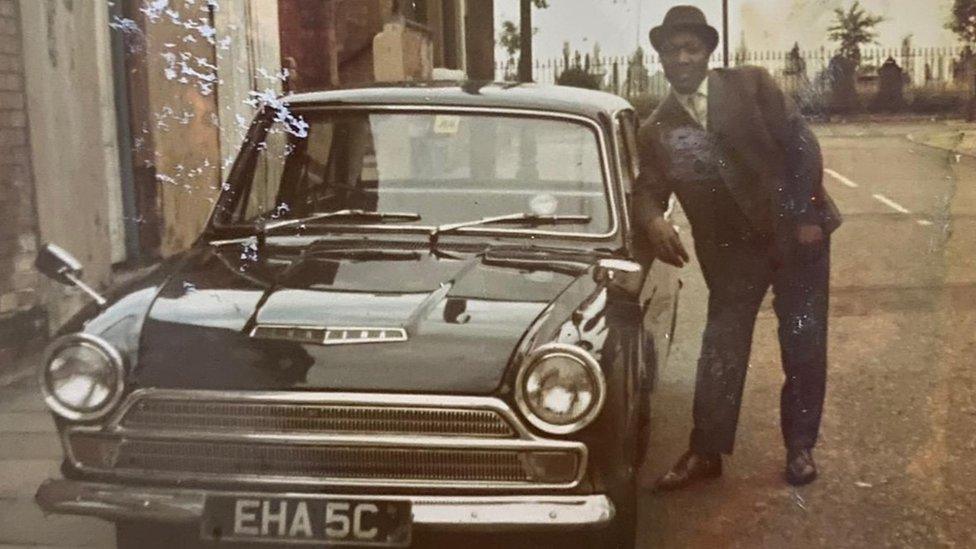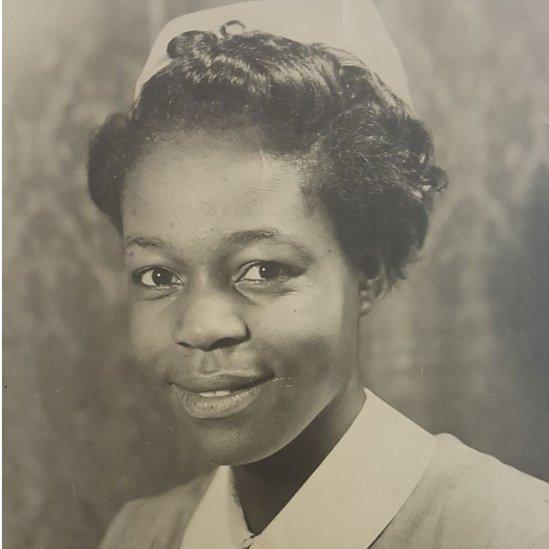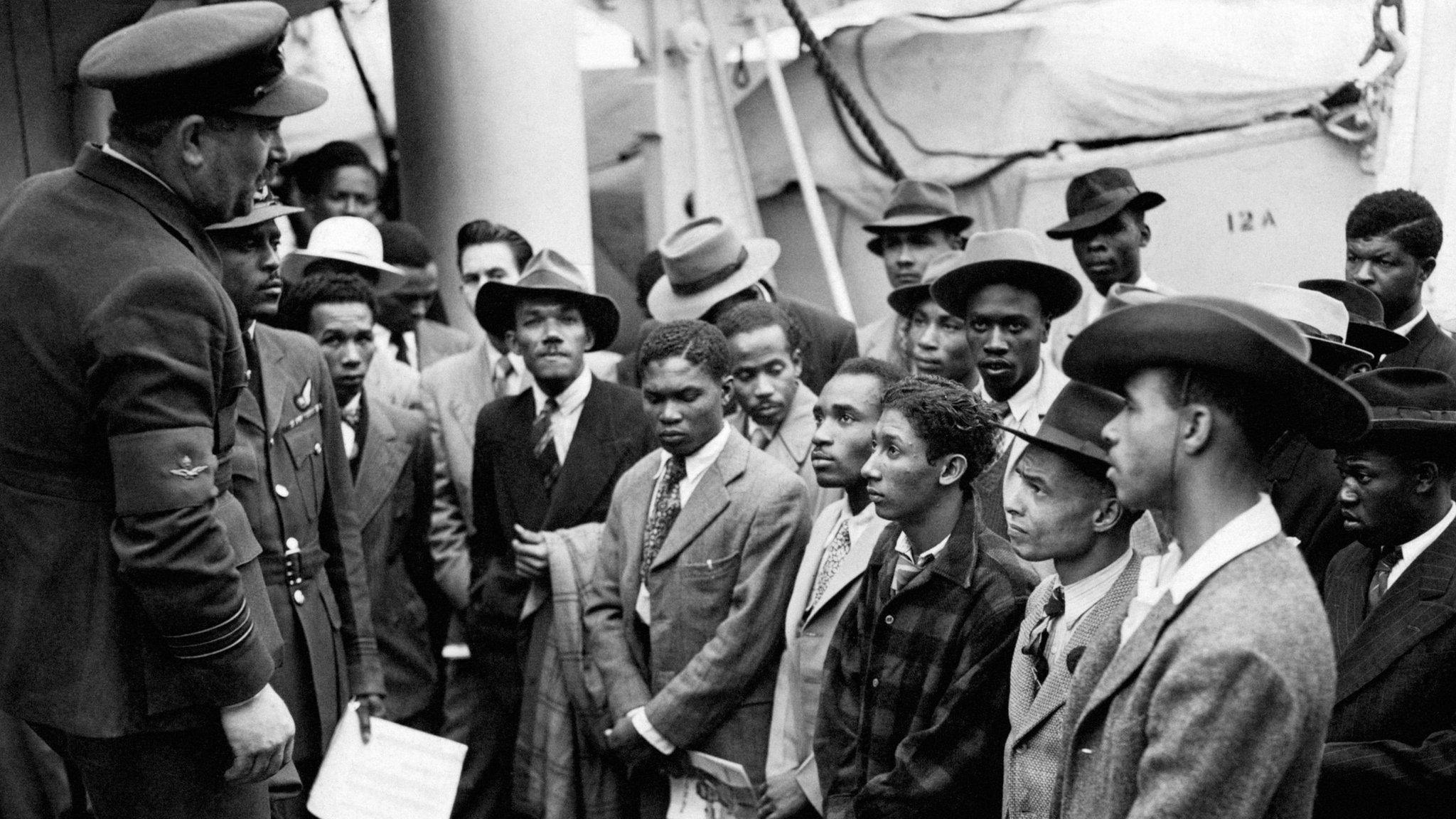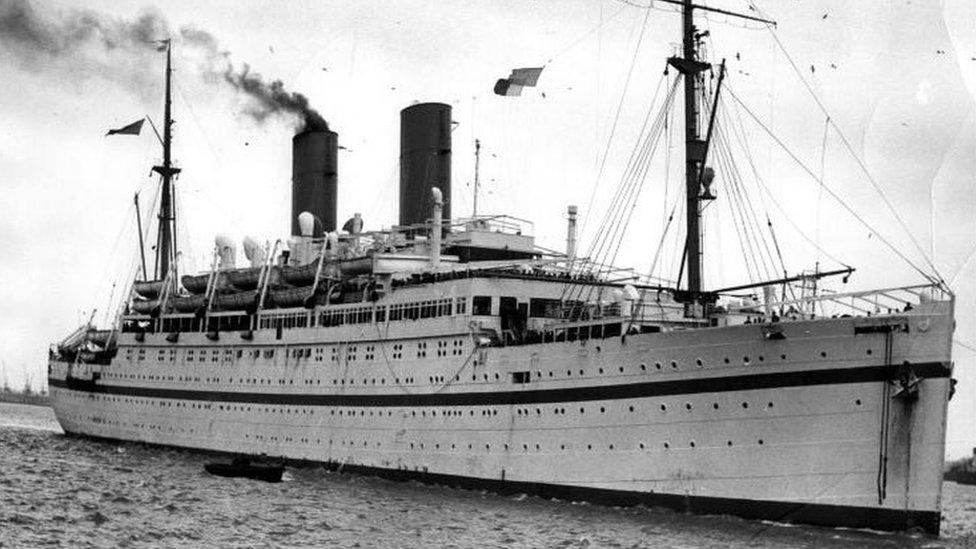Windrush generation banking exclusion explored in exhibition
- Published

Stan, a member of the Windrush generation, standing proudly by a car he bought by saving with a Pardner Hand scheme
Financial barriers faced by some members of the Windrush generation are to be explored in a new exhibition.
The display will feature the history of a community savings scheme, which originates from Africa and was later made popular in the UK.
The scheme, Pardner Hand, was used by people who struggled to access the UK banking system, such as migrants.
The exhibition at the Bank of England in the City of London opens on Windrush Day, on Thursday, 22 June.
Curated by Museumand, which is the National Caribbean Heritage Museum, it is one of a series of planned exhibitions at the bank on the theme of "financial exclusion".
It will tell the stories of Caribbean immigrants who came to the UK after World War Two, known as the Windrush generation, and were unable to open bank accounts, because they had no credit history, low earnings or lacked guarantors.
It meant many of those people could not buy houses or save money.
"We were invited here, so we expected the full range of services. It wasn't like we were illegal immigrants, we were invited here."
"It felt like discrimination, and it felt rude because we held white people with such high regard and with such respect, we never expected to be treated with such open discrimination," said Catherine Ross, Museumand's founder, who herself came to England from the Caribbean in 1958.

Margaret, a nurse who came to work in the UK as part of the Windrush generation in 1956
Unable to access high street banks, many members of the Windrush population in the UK started community savings and loan schemes based on a model already established in the Caribbean, Pardner Hand. It had originated in Africa and was later taken to the Caribbean.
Ms Ross said the scheme had enabled many people to buy property and take out loans.
It is still used widely today by people who do not trust the banking system, she said.
The exhibition includes interviews with members of the Windrush generation and explains how the Pardner Hand travelled with their ancestors to the West Indies and on to the UK.
Jennifer Adam, curator at the Bank of England Museum told BBC London she believed it was "really important to tell this story of financial exclusion".
"This was the challenge that many people in the Windrush generation faced."

Follow BBC London on Facebook, external, Twitter, external and Instagram, external. Send your story ideas to hellobbclondon@bbc.co.uk, external
Related topics
- Published2 June 2023

- Published13 August 2020

